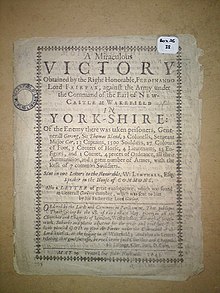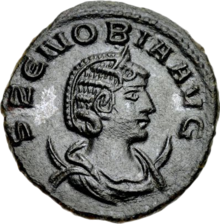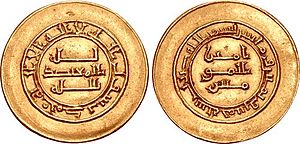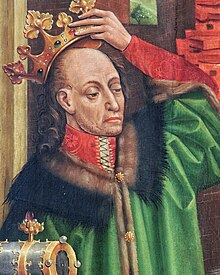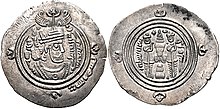Portal:History
The History Portal
History (derived from Ancient Greek ἱστορία (historía) 'inquiry; knowledge acquired by investigation') is the systematic study and documentation of the past. History is an academic discipline which uses a narrative to describe, examine, question, and analyse past events, and investigate their patterns of cause and effect. Historians debate which narrative best explains an event, as well as the significance of different causes and effects. Historians debate the nature of history as an end in itself, and its usefulness in giving perspective on the problems of the present.
The period of events before the invention of writing systems is considered prehistory. "History" is an umbrella term comprising past events as well as the memory, discovery, collection, organization, presentation, and interpretation of these events. Historians seek knowledge of the past using historical sources such as written documents, oral accounts or traditional oral histories, art and material artefacts, and ecological markers.
Stories common to a particular culture, but not supported by external sources (such as the tales surrounding King Arthur), are usually classified as cultural heritage or legends. History differs from myth in that it is supported by verifiable evidence. However, ancient cultural influences have helped create variant interpretations of the nature of history, which have evolved over the centuries and continue to change today. The modern study of history is wide-ranging, and includes the study of specific regions and certain topical or thematic elements of historical investigation. History is taught as a part of primary and secondary education, and the academic study of history is a major discipline in universities.
Herodotus, a 5th-century BCE Greek historian, is often considered the "father of history", as one of the first historians in the Western tradition, though he has been criticized as the "father of lies". Along with his contemporary Thucydides, he helped form the foundations for the modern study of past events and societies. Their works continue to be read today, and the gap between the culture-focused Herodotus and the military-focused Thucydides remains a point of contention or approach in modern historical writing. In East Asia a state chronicle, the Spring and Autumn Annals, was reputed to date from as early as 722 BCE, though only 2nd-century BCE texts have survived. The title "father of history" has also been attributed, in their respective societies, to Sima Qian, Ibn Khaldun, and Kenneth Dike. (Full article...)
Featured picture
Did you know (auto generated)

- ... that no one laughed at the worst joke in legal history?
- ... that officials said this year's Louisiana wildfire season includes the largest wildfire in the state's history?
- ... that Timo Meier became the first player in San Jose Sharks franchise history to score five goals in one game when he was 25?
- ... that the 1971 Hazelwood massacre was the largest mass murder in the history of "Murder City"?
- ... that in 2023, car manufacturer Rivian acquired the historic Lynn Theatre in Laguna Beach, California, and converted it into its first showroom?
- ... that Frederica Planta designed cards to teach the children of George III and Queen Charlotte the history of England?
Irakli Tsereteli (2 December [O.S. 20 November] 1881 – 20 May 1959) was a Georgian politician and a leading spokesman of the Social Democratic Party of Georgia and later Russian Social Democratic Labour Party (RSDLP) during the era of the Russian Revolutions.
Tsereteli was born and raised in Georgia when it was part of the Russian Empire. A member of the Menshevik faction of the RSDLP, Tsereteli was elected to the Duma in 1907, where he gained fame for his oratorical skill. Shortly after entering the Duma, Tsereteli was arrested and charged with conspiracy to overthrow the Tsarist government, and exiled to Siberia. A dedicated Social Democrat who believed in the Menshevik ideology, Tsereteli was one of the leading figures of the movement in Russia. In 1915, during his Siberian exile, Tsereteli formed what would become known as Siberian Zimmerwaldism, which advocated for the role of the Second International in ending the war. He also developed the idea of "Revolutionary Defensism", the concept of a defensive war which only allowed for the defence of territory, and argued it was not being utilized. (Full article...)
On this day
January 11: Prithvi Jayanti in Nepal
- 1654 – Arauco War: The Mapuche-Huilliche of southern Chile defeated a slave-hunting Spanish army at the Battle of Río Bueno.
- 1693 – The most powerful earthquake recorded in Italy struck the island of Sicily, causing 60,000 deaths and prompting a period of architectural revival.
- 1914 – The Karluk, the flagship of the Canadian Arctic Expedition, sank after being crushed by ice.
- 1964 – In a landmark report (cover pictured), U.S. surgeon general Luther Terry issued a warning that tobacco smoking may be hazardous to health, concluding that it has a causative role in lung cancer, chronic bronchitis, and other illnesses.
- 2003 – After Chicago police detective Jon Burge was discovered to have extracted forced confessions from more than 200 suspects, the governor of Illinois commuted the death sentences of 167 prisoners and pardoned four others.
- Min Bin (d. 1554)
- Socrates Nelson (b. 1814)
- Eva Le Gallienne (b. 1899)
- Eva Tanguay (d. 1947)
Selected quote
If you wish to avoid foreign collision, you had better abandon the ocean.
— Henry Clay, American statesman
Related portals
More Did you know...
- ... that in 1898, the United States government annexed the Kingdom of Hawaii despite protestation from Queen Liliuokalani (pictured)?
- ... that Jean Thurel was a soldier in the French Régiment de Touraine for more than 75 years?
- ... that the severed head of Julia Martha Thomas — murdered, boiled and dismembered by her maid in 1879 — was found next door to Sir David Attenborough's house in 2010?
- ... that the 18th-century Indian automaton Tipu's Tiger shows a near life-size European being mauled by a tiger, and emits wails and grunts as well as containing a pipe organ?
- ... that Svið, a traditional Icelandic dish, consists of a sheep's head that has been cut in half, singed, and boiled with the brain removed?
- ... that, despite overseeing the construction of the crematoria and gas chambers at Auschwitz, what specifically shocked SS-Obersturmführer Robert Mulka at the camp was his colleagues' dress sense?
- ... that Tsar Alexander II of Russia had a special crystal bottle of Roederer champagne made for the Three Emperors Dinner in 1867 so that he could admire the bubbles?
- ... that the Gudea cylinders are the longest literary composition ever found in the Sumerian language?
Topics
Categories

History • By period • By region • By topic • By ethnic group • Historiography • Archaeology • Books • Maps • Images • Magazines • Organizations • Fictional • Museums • Pseudohistory • Stubs • Timelines • Chronology • People • Wikipedia historians
WikiProjects
![]() WikiProject History •
Ancient Near East • Australian History • Classical Greece and Rome • Dacia • Former countries • History of Canada • Chinese history • European history • Heraldry and vexillology • Indian history • Jewish history • Medieval Scotland • Mesoamerica • Military history • Middle Ages • History of Science
WikiProject History •
Ancient Near East • Australian History • Classical Greece and Rome • Dacia • Former countries • History of Canada • Chinese history • European history • Heraldry and vexillology • Indian history • Jewish history • Medieval Scotland • Mesoamerica • Military history • Middle Ages • History of Science
WikiProject Time • Days of the Year • Years
WikiProject Biography • Composers • Political figures • Saints • United States Presidents
Things you can do
 |
Here are some tasks awaiting attention:
|
Associated Wikimedia
The following Wikimedia Foundation sister projects provide more on this subject:
-
Commons
Free media repository -
Wikibooks
Free textbooks and manuals -
Wikidata
Free knowledge base -
Wikinews
Free-content news -
Wikiquote
Collection of quotations -
Wikisource
Free-content library -
Wikiversity
Free learning tools -
Wiktionary
Dictionary and thesaurus




